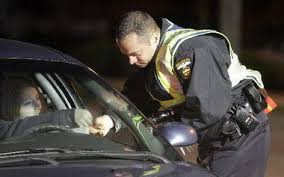
DUI Investigation Phase II
Direct Examination and the State’s Evidence
Throughout the course of a criminal prosecution, the state will repeatedly draw attention to all of the things that a defendant did wrong during the string of events that led to his or her arrest. The prosecution will only seek to elicit information from the witness that is damaging to the defendant.
Traditional Cross-Examination
The purpose of cross-examination is to test whether or not the witnesses sincerely believes that he or she is telling the truth. Terence MacCarthy, renowned expert on cross-examination, states that the traditional method of cross-examination occurs in three phases. 1) traditional incantations; 2) begging and 3) demolish, destroy and devastate. Defense attorneys are simply trying to get an individual to change their story when they use a traditional method of cross-examination. Nobody ever gets what we call a “Perry Mason Moment” when they are cross examining a witness. When that fails(begging) attorneys turn to the third step, which typically consists of acting like a…………lawyer. Accusing an individual of lying due to hyper technical grammatical arguments and arguing over the definition of the word “is.”
Effective Cross-Examination
The traditional cross-examination is typically not effective. The most effective form of cross-examination is to focus your cross-examination on everything that your client did right and to have the State’s witness agree with you the entire time. In one of my more memorable jury trials the prosecutor warned the police officer ahead of time not to argue with me. The police officer agreed with me on each and every point that I made regarding the roadside sobriety exercises. After the officer completed her testimony and the jury was excused, the officer went to speak with the assistant state attorney who didn’t even look at her and said “Go out in the hallway and pepper spray yourself in the face!”
Example of Changing the Focus
It is usually pretty easy to focus on things that your client did right in DUI cases. I have never seen a case where a defendant exhibited every single cue listed in the NHTSA guidelines. Most often a defendant only exhibits 2 or 3 indications of impairment. Read the motion which illustrates how to frame your cross examination to focus on what your client did right:
[gview file=”https://yourfloridacriminalattorney.com/wp-content/uploads/2014/12/Suppress-Phase-II.pdf” save=”1″]
The chart on page 4 lists all 13 cues that an officer is trained to detect during Phase II of a DUI stop. In that specific case, the officer could only cite to “slurred speech” as an indication of impairment. A defense attorney is able to effectively bury one or two cues of impairment by focusing on all of the cues that were not exhibited as opposed to arguing with the officer over the specifics of the cues he claims to have observed. A good cross for the referenced chart would go something like this:
Q: “You are trained to look for 13 different cues of impairment during phase II of a DUI investigation?”
A: “Yes.”
Q: “You are trained to listen for inconsistent responses?”
A: “Yes.”
Q: “***Defendant’s*** responses were consistent?”
A: “Yes.”
Q: “Abusive language is an indication of impairment?”
A: “Yes.”
Q: “***Defendant*** was civil and polite?”
A: “Yes.”
Result = 92.4% Correct. A instead of F!
By focusing your cross examination on the cues that your client did not exhibit, you make the one cue that your client did exhibit appear to be trivial. In closing you can hammer home that your client did not exhibit 92.4% of the cues of impairment. In what world is a 92.4% a failing grade?
This approach can be used throughout the case. It works in motion practice just the same as it works in trial. As for the sample motion in this matter, the motion forced the state to reduce the charge to a reckless driving and a withheld adjudication.
For additional information, please contact
The Law Offices of Michael A. Dye, PA, 1 East Broward Boulevard #700, Fort Lauderdale, FL 33301 (954)990-0525 or
The Law Offices of Michael A. Dye, PA, 2 S Biscayne Blvd, Miami, FL 33131 (305)459-3286

